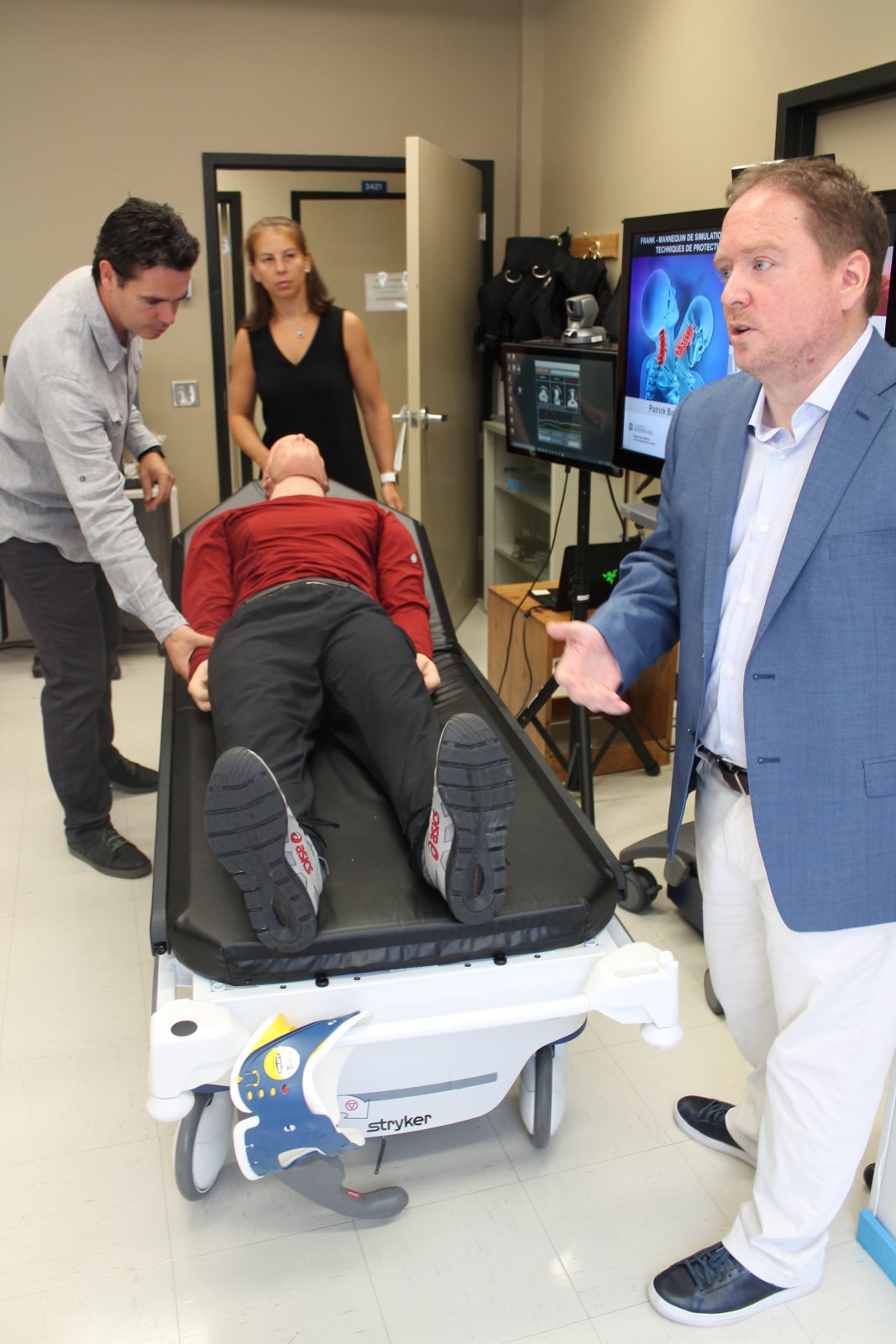Anyone who has taken a first-aid course has been told the importance of taking care of a person’s neck in a situation where there may be trauma, as the slightest misstep in bracing the cervical spine could cause permanent and life-changing injuries and paralysis. For Sherbrooke research professor Patrick Boissy and his team, however, just telling people to be careful wasn’t a good enough option. Boissy, along with engineers Mathieu Hamel and Karina Lebel and orthopedic surgeon François Cabana, developed Frank, a sensor-filled mannequin meant to emulate the body of an adult man as closely as possible in terms of weight distribution and flexibility for use in training first responders, medical staff, and anyone else for whom such practice might be useful. See full story in the Wednesday, August 22 edition of The Record.
Meet Frank: the made-in Sherbrooke approach to spinal damage training
By Gordon Lambie





